
Prevenir el Coronavirus con biomagnetismo
Os compartimos este artículo de la revista Revista Más Sana. Estamos siendo testigos y viviendo en carne propia el inicio de cambios profundos a nivel
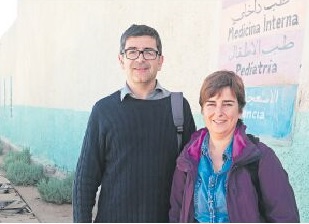
Entrevista en Diari de Sabadell a José Miguel Moreno sobre la Marcha solidaria que se realizó del 24 al 28 de noviembre a los campos de refugiados saharauis, en tierras de Argel.
Te traducimos la entrevista a diferentes idiomas:
Acaban de participar en el Sáhara en una Marcha solidaria. ¿Qué han hecho durante el viaje?
Ha habido dos frentes. Hemos ido a la Marcha Solidaria promovida por la Fundación NEPP con la que colaboro. Su objetivo es la construcción de un hospital pediátrico en la zona liberada del antiguo Sáhara Occidental.
¿Qué es la zona liberada?
Sería la zona no ocupada por ejército de Marruecos. Estamos hablando de una parte del desierto del Sáhara, que ocupa cuatro o cinco países. Hay tendencia a confundir al territorio político con el desierto. La zona liberada y ocupada está separada por un muro, el segundo más grande del mundo después de la muralla China, de 27200Km. La particularidad es que está formado por minas antipersonas como obstáculo para que no se pueda pasar, la fabricación (de las minas) es de países del primer mundo, entre ellos España.
¿Cuántas personas han participado en la marcha?
Han participado una cincuentena de personas, entre ellos niños. Visitamos el muro, algunos museos, hospitales y se hizo una fiesta. Nuestras aportaciones, un plus con el precio del viaje, se han destinado a este hospital que se hará para la población nómada. Hace unos años se hizo otra acción para construir un hospital psiquiátrico, uno de los colectivos más vulnerables.
¿Entonces, el otro frente del viaje cuál es?
Esta ha sido una acción más particular mía, el proyecto se llama “una aguja, un suspiro”, para introducir la acupuntura dentro del sistema sanitario saharaui. Es necesario hacerlo a través de acciones, una de ellas es pasar visitas allí mismo a la población, cosa que he hecho en pequeña medida.
¿Por qué?
La idea inicial era hacer formación entre los mismos saharauis, pero vi que no era tan fácil, aún teniendo el beneplácito de su Ministro de Salud. Pero primero es necesario pasar visita para crear demanda entre la población.
¿Y de cara al futuro?
Mi intención para los siguientes viajes es lleva estudiantes españoles para que puedan hacer tratamientos allí mismo. Lo estoy valorando después de este viaje. Los saharauis están muy interesados en esta técnica.
¿Qué otras acciones tiene prevista?
De cara al mes de mayo, con un colectivo de médicos de diferentes especialidades, cogeremos vehículos y realizaremos un recorrido de unos 1400Km por la parte nómada del desierto de la zona liberada, por donde haya población, con la intención de pasar visita.
¿Además de ayudar a esta población del medio del desierto, cuál es la motivación del viaje?
La intención es sobre todo concienciar a nivel de directivos del país la introducción asistencial de la acupuntura. Otro frente seria a nivel educativo, acordando con la escuela de enfermería la formación de la acupuntura, para que ellos mismos realicen la asistencia.
Es curioso que un país como el Sáhara crea tanto en la acupuntura
La situación es muy diferente. Allí tienen muchos problemas para obtener la farmacología necesaria, por tanto, no están condicionados por la medicina alopática, entre otras cosas porque no hay todos los recursos sanitarios y necesitan buscar alternativas. Cómo que ven que los resultados son positivos, ya lo demandan.
¿Qué ventajas tiene la acupuntura en un país como el Sáhara?
Cuando pasamos consulta ya preguntan cuando volveremos, porque les ha ido bastante bien. La acupuntura es muy barata. Se hace cara en nuestro país. Es muy práctica, yo voy con una caja de agujas en el bolsillo y me permite tratar diferentes patologías. Desde traumatología, ginecología o medicina interna.
¿Es necesario creer en la acupuntura?
No es un tema de fe. Yo trato y si va bien perfecto. No es efectiva para todo. No se trata de creer o no creer. Hay personas que me han dicho sentirse estafadas por tener que tomar pastillas y más pastillas durante años hasta llegar a la acupuntura.
José Miguel Moreno, acupuntura solidaria en el Sáhara
Profesor de Medicina China
José Miguel Moreno (49 años) es psicólogo sanitario, acupuntor y profesor de Medicina Tradicional China. Su actividad profesional la desarrolla en Centre Xue, dónde hace terapias y formación. Según explica, su introducción en esta faceta solidaria le vino a través de la Fundación NEPP que le pidió hacer formación de Medicina China, en concreto auriculopuntura, a sus psicólogos de su hospital psiquiátrico que han montado en el Sáhara. Según José Miguel Moreno, “esta es una demostración de la mentalidad muy abierta del presidente de esta fundación, el Dr Jordi Domingo, un psiquiatra muy reconocido.”
Ils viennent de participer au Sahara dans une marche solidaire. Qu’ont-ils fait pendant le voyage?
Il y a eu deux fronts. Nous sommes allés à la Marche Solidaire promue par la Fondation du NEPP avec laquelle je collabore. Son objectif est la construction d’un hôpital pédiatrique dans la zone libérée de l’ex-Sahara Occidental.
Qu’est que c’est la zone libérée?
Ce serait la zone non occupée par l’armée marocaine. Nous parlons d’une partie du désert du Sahara, qui occupe quatre ou cinq pays. Il y a une tendance à confondre le territoire politique avec le désert. La zone libérée et occupée est séparée par un mur, le deuxième plus grand du monde après le mur de la Chine, auprès de 27200 km. La particularité est qu’il est formé par les mines antipersonnel comme un obstacle pour n’y pouvoir passer. La fabrication (des mines) est faite par des pays du premier monde, parmi lesquels Espagne.
Combien de personnes ont participé à la marche?
Nous y sommes participés une cinquantaine de personnes, il y avait aussi des enfants. Nous avons visité le mur, des musées, des hôpitaux et une fête. Nos contributions, un plus sur le prix du voyage, ont été destinées à cet hôpital qui servira à la population nomade. Il y a quelques années, une autre action a été entreprise pour construire un hôpital psychiatrique, l’un des groupes les plus vulnérables.
Alors, l’autre front du voyage qu’est-ce que c’est?
Cela a été une action plus particulièrement mienne. Le projet s’appelle “une aiguille, un soupir”, pour introduire l’acupuncture dans le système de santé sahraoui. Il est nécessaire de le faire à travers des actions, l’un d’entre eux est de visiter la population là-bas. Ce que j’ai fait dans une petite mesure.
Pour quoi?
Mon idée initiale était de former les Sahraouis eux-mêmes, mais j’ai vu que ce n’était pas si facile, malgré avoir l’approbation de leur ministre de la Santé. Mais d’abord, il est nécessaire de visiter pour créer une demande parmi la population.
Et face au futur?
Mon intention pour les prochains voyages c’est d’amener des étudiants espagnols afin qu’ils puissent faire des traitements là-bas. Je l’évalue après ce voyage. Les Sahraouis sont très intéressés par cette technique.
Quelles autres actions avez-vous prévues?
Pour le prochain mois de mai, avec un groupe de médecins de différentes spécialités, nous prendrons les véhicules pour faire un tour auprès de 1400 km pour la zone nomade du désert du coté libérée, où il y a de population avec l’intention de les visiter.
En plus d’aider cette population au milieu du désert, quelle est la motivation du voyage?
L’intention est avant tout de sensibiliser des managers du pays parce qu’ils connaissent pourquoi il se fait un travail d’acupuncture. Un autre front serait au niveau éducatif, en accord avec l’école de soins infirmiers faire la formation de l’acupuncture, de sorte qu’ils effectuent eux-mêmes l’assistance.
C’est curieux qu’un pays comme le Sahara soit fier de se soigner avec l’acupuncture
La situation est très différente. Là ils ont beaucoup de problèmes pour obtenir la pharmacologie nécessaire, donc, ils ne sont pas conditionnés par la médecine allopathique, parmi autres questions parce qu’il n’y a pas toutes les ressources de santé et ils ont besoin de chercher des alternatives. Comme qu’ils voient des résultats positifs, ils viennent la demander.
Quelles sont les avantages de l’acupuncture dans un pays comme le Sahara?
Lorsque nous passons la consultation, ils nous demandent déjà quand nous reviendrons, parce qu’ils ont très bien réussi. L’acupuncture n’est pas chère. Elle devient chère chez nous. C’est très pratique, je vais avec une boîte d’aiguilles dans ma poche et cela me permet de traiter différentes pathologies. De la traumatologie, de la gynécologie ou de la médecine interne.
Est-il nécessaire de croire en l’acupuncture?
Ce n’est pas une question de foi. Je fais le traitement et si ça se passe bien, parfait. Ce n’est pas efficace pour tout. Il ne s’agit pas de croire ou de ne pas croire. Il y a des personnes qui m’ont dit de se sentir trompées en prenant des pilules et plus de pilules pendant des années jusqu’à ils ont découvert l’acupuncture.
José Miguel Moreno, l’acupuncture solidaire au Sahara
Professeur de médecine chinoise
José Miguel Moreno (49 ans) est psychologue sanitaire, acupuncteur et professeur de médecine traditionnelle chinoise. Il développe son activité professionnelle au Centre Xue, où il effectue des thérapies et des formations. Il arrive à s’introduire sur ces taches solidaires a travers la Fondation NEPP qui lui demande de former en médecine chinoise, en particulier l’oreille, aux psychologues de son hôpital psychiatrique qui ont monté dans le Sahara. Selon José Miguel Moreno, “c’est une démonstration de la mentalité très ouverte du président de cette fondation, le Dr Jordi Domingo, un psychiatre bien connu”.
They have just participated in the Sahara in a solidarity march. What have you done during the trip?
There have been two fronts. We have gone to the Solidarity March promoted by the NEPP Foundation with which I collaborate. Its objective is the construction of a paediatric hospital in the liberated zone it was Western Sahara.
What is the liberated zone?
It is the area not occupied by Morocco’s army. We are talking about a part of the Sahara desert, which occupies four or five countries. There is a tendency to confuse the political territory with the desert. The liberated and occupied zone is separated by a wall, the second largest in the world after the wall of China, of 27200 km. The particularity is that it is formed by anti-personnel mines as an obstacle so that it can not be passed, the manufacture (of the mines) is from first world countries, including Spain.
How many people have participated in the march?
Some fifty people have participated, including children. We visited the wall, some museums, hospitals and a party was held. Our contributions, plus the price of the trip, have been allocated to this hospital that will be made for the nomadic population. A few years ago another action was taken to build a psychiatric hospital, one of the most vulnerable groups.
Then, the other front of the trip what is it?
This has been a more particular action, the project is called “a needle, a sigh”, to introduce acupuncture within the Saharawi health system. It is necessary to do it through actions, one of them is to visit the population there, which I have done in a small way.
Why?
The initial idea was to train among the Sahrawis themselves, but I saw that it was not so easy, even with the approval of their Minister of Health. But first it is necessary to visit to create demand among the population.
And facing the future?
My intention for the following trips is to take Spanish students so they can do treatments right there. I’m evaluating it after this trip. The Sahrawis are very interested in this technique.
What other actions do you have planned?
For the month of May, with a group of doctors of different specialties, we will take vehicles and make a journey of about 1400Km by the nomadic part of the desert of the liberated area, where there is population, with the intention of visiting.
In addition to helping this population in the middle of the desert, what is the motivation of the trip?
The intention is above all to raise the awareness of acupuncture at the level of the country’s managers. Another front would be at an educational level, agreeing with the school of nursing the formation of acupuncture, so that they themselves perform the assistance.
It is curious that a country like the Sahara creates so much in acupuncture
The situation is very different. There they have many problems to obtain the necessary pharmacology, therefore, they are not conditioned by allopathic medicine, among other things because there are not all health resources and they need to look for alternatives. How they see that the results are positive, they already demand it.
What are the advantages of acupuncture in a country like the Sahara?
When we pass consultation already ask when we will return, because they have done quite well. Acupuncture is very cheap. It becomes expensive in our country. It is very practical, I go with a box of needles in my pocket and it allows me to treat different pathologies. From traumatology, gynecology or internal medicine.
Is it necessary to believe in acupuncture?
It is not a matter of faith. I try and if it goes well perfect. It is not effective for everything. It is not about believing or not believing. There are people who have told me to feel cheated by having to take pills and more pills for years until they reach acupuncture.
José Miguel Moreno, solidarity acupuncture in the Sahara
Professor of Chinese Medicine
José Miguel Moreno (49 years old) is a sanitary psychologist, acupuncturist and professor of Traditional Chinese Medicine. He develops his professional activity at Center Xue, where he does therapies and training. As he explains, his introduction in this solidary aspect came through the NEPP Foundation that asked him to do Chinese Medicine training, specifically auriculopuncture, to his psychologists from his psychiatric hospital who have set up in the Sahara. According to José Miguel Moreno, “this is a demonstration of the very open mentality of the president of this foundation, Dr. Jordi Domingo, a well-known psychiatrist.”
Compártelo
También podría interesarte

Os compartimos este artículo de la revista Revista Más Sana. Estamos siendo testigos y viviendo en carne propia el inicio de cambios profundos a nivel
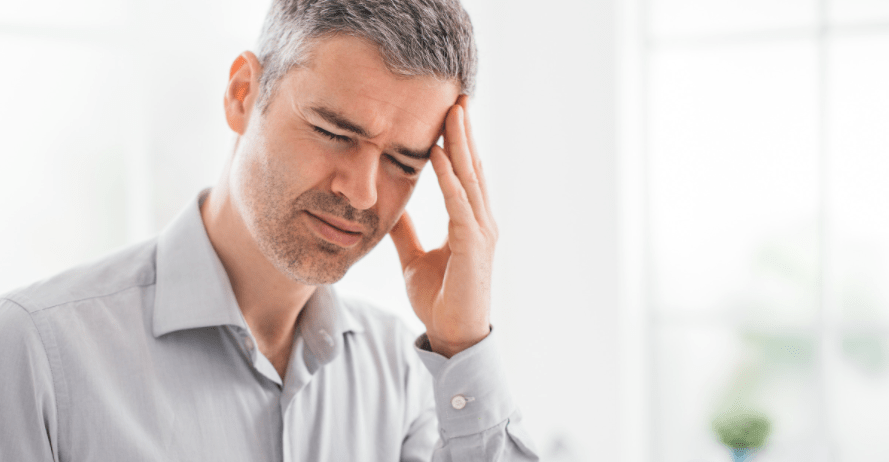
¿Quién no ha experimentado alguna vez dolor de cabeza? Está claro que la respuesta es que todos de una manera u otra hemos sucumbido a
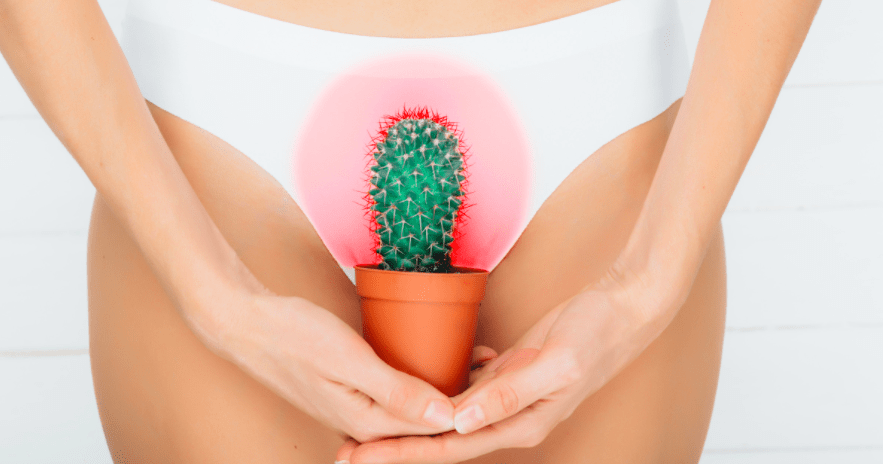
Existen varios tipos de desequilibrios menstruales que pueden afectar a las mujeres en distintas etapas de su vida. Entre los más comunes se encuentran
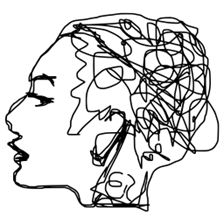
Un creciente interés por comprender cómo las personas construyen una identidad coherente y saludable. Esta integración ayuda a mantener un sentido de continuidad, propósito y bienestar.
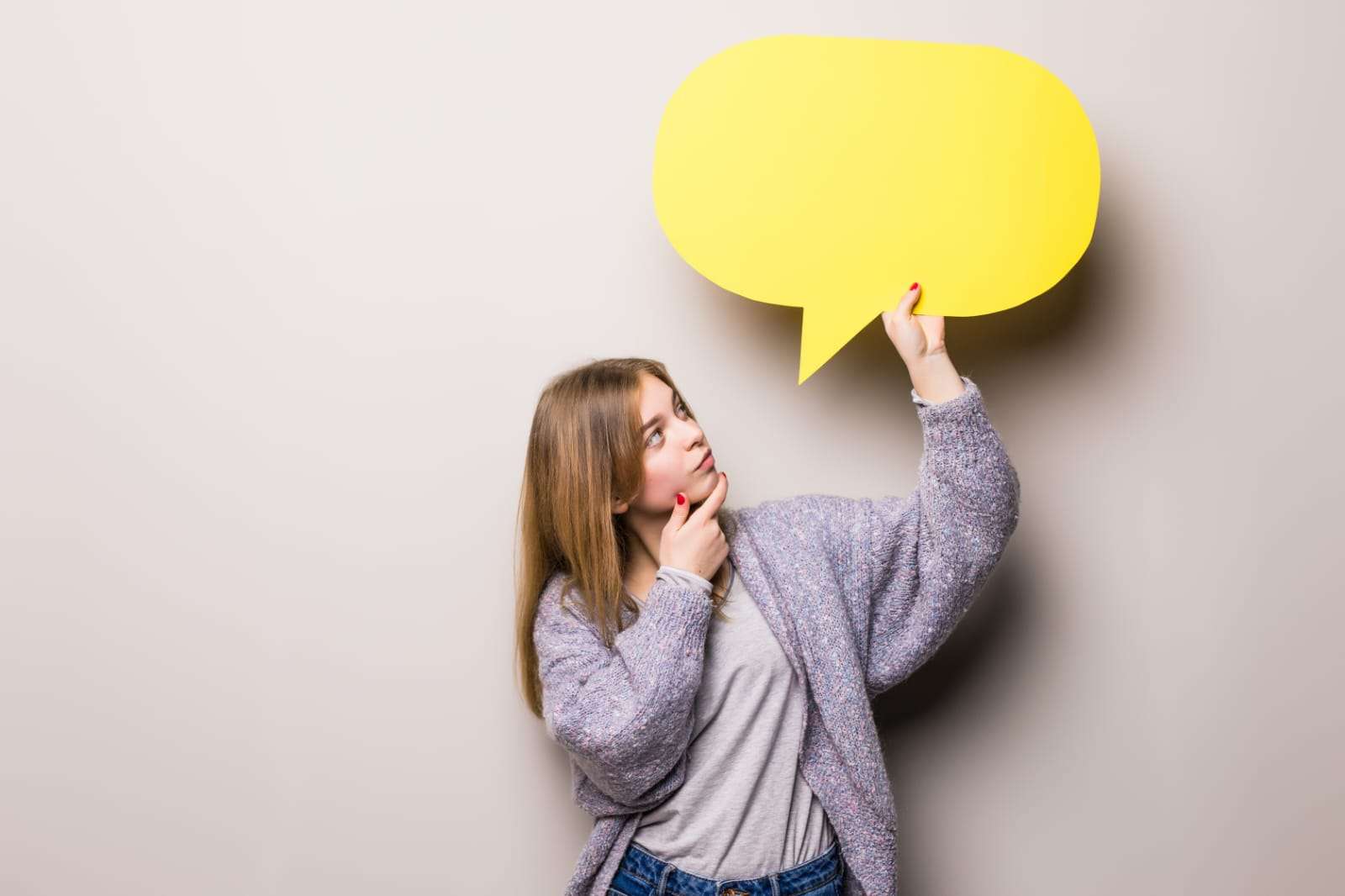
Vivimos en una cultura que tiende a silenciar el cuerpo. Cuando aparece un síntoma, nuestro primer impulso es eliminarlo: una pastilla por el dolor, un antiácido por la digestión, un estimulante por la fatiga.
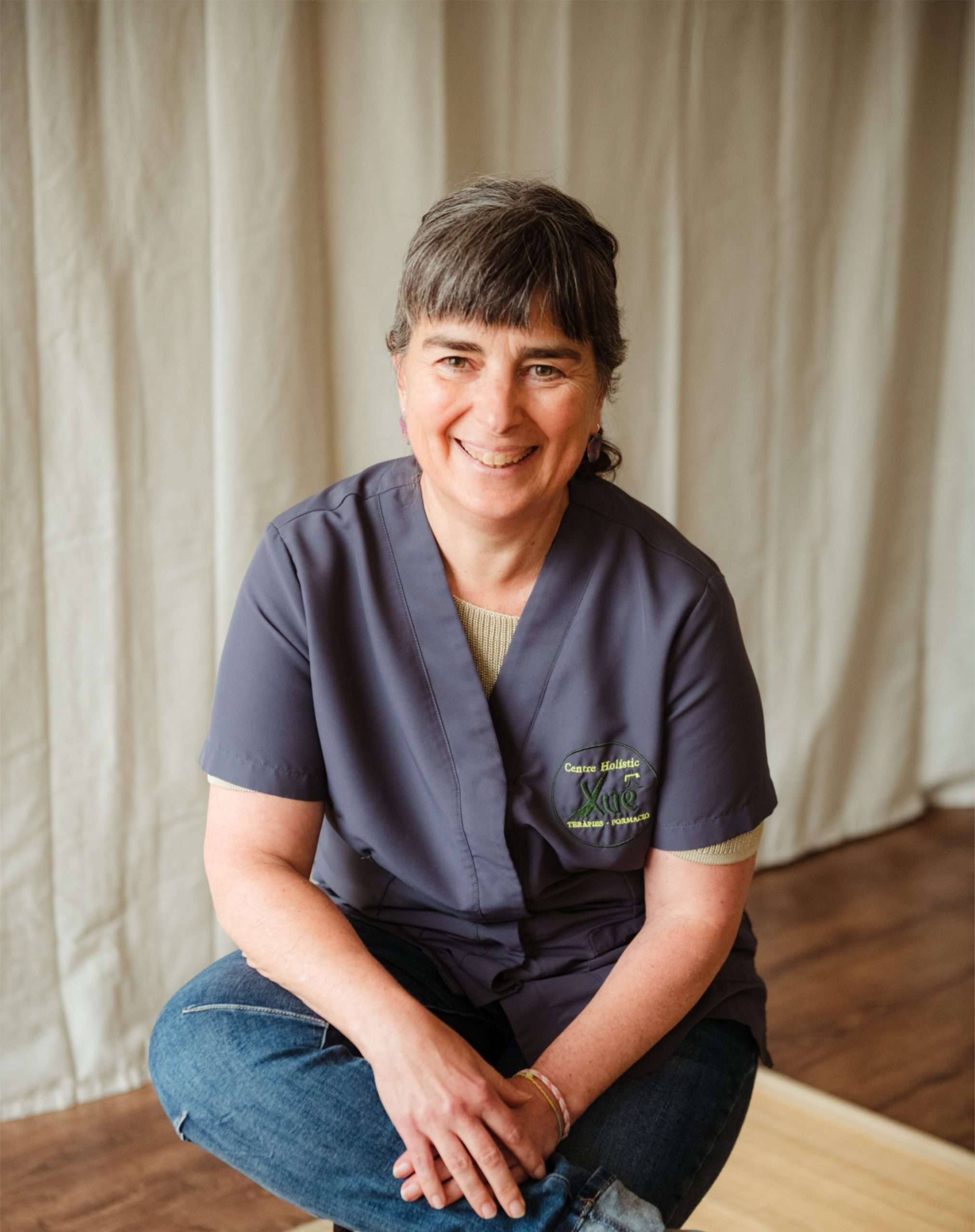
Mi experiencia personal con el biomagnetismo Mi andadura en el biomagnetismo comenzó en 2011. Fue mi socio quien me animó a formarme en esta técnica,

En este reciente episodio del emocionante programa “Adictos al Sentir”, los fundadores de Xue abren su corazón y revelan la historia que dio vida a